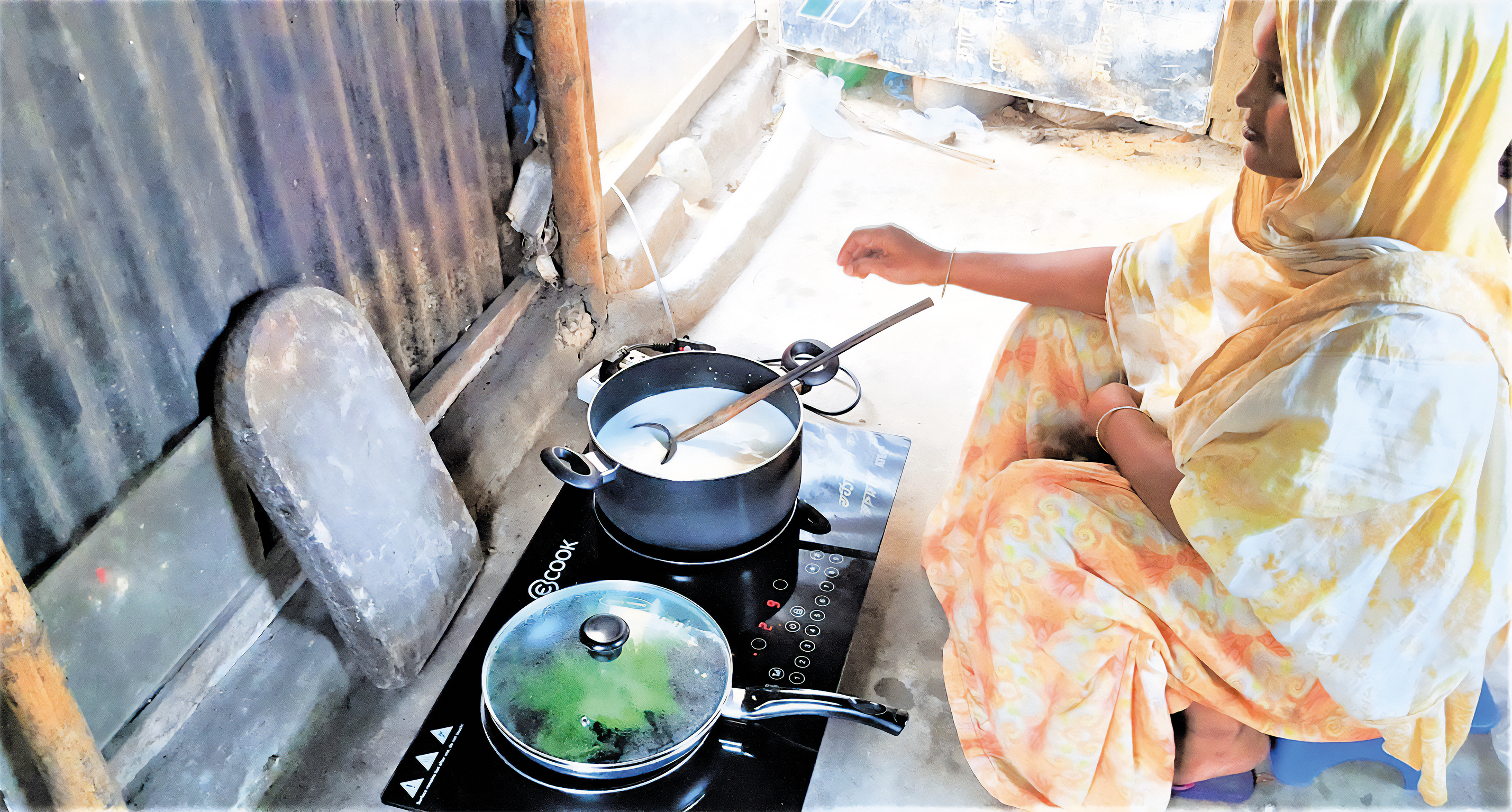Fighting absolute poverty with philanthropic impact investment

This webinar with Vanina Farber, elea Chair of Social Innovation and Peter Wuffli, Founder and Chairman of elea Foundation for Ethics in Globalization, appeared live on Wednesday, 8th April at 11am CET.
With more than 2 billion people having to cope with living on less than 3 dollars a day, Professor Vanina Farber and Dr Peter Wuffli explore how a simple formula developed from the elea Foudation’s work can help solve social and environmental challenges: Entrepreneurship x Capital = Impact + Innovation.
In the first in this series of webinars focusing on philanthropic impact investment, Professor Vanina Farber characterises an impact investor as “somebody who actively places capital in enterprises that generate a measurable, desired, beneficial, social or environmental outcome that would not occur if their investment was not there.” She explains how to be considered as such, impact investment needs to meet the following criteria:
- harbor an active and desired intention to achieve a specific social or environmental impact
- possess “additionality”, which means that if the investor hadn’t invested in these enterprises commercial money would probably not be available
- be producing financial returns that can range broadly from highly concessionary money to market returns
Off the back of the COVID-19 crisis, Professor Vanina Farber discussed how corporations are asking themselves “How can I be useful?” and “How can I use my resources to serve society?”
From the creation of the elea Foundation for Ethics and Globalization in 2006, Dr Peter Wuffli outlines the main investment themes the Foundation now covers as well as its pillars of work, which include finding new philanthropic investments, engaging philanthropic capital and professional development.
But how is impact measured? At the elea Foundation, a point system for measuring impact has been established, starting with benefits for direct beneficiaries of the investment. The “impact point” system then examines the business model of the social enterprise, how sustainable it is and how well it manages risk. Finally, “elea leverage” is incorporated into the point system in which the elea Foundation examines the value that it brings to the project. The outcome is a rating through which impact of specific interventions can be measured.
One question raised related to the balance in roles played between private equity and corporate venture capital when it comes to impact investing. Dr Peter Wuffli outlined the powerful combination of collaborating with the elea Foundation with (a) a specific focus on, and expertise in, social impact and (b) the “impatience” of seeing direct outcomes. This combination is common in the stance that venture capitalists take in impact investing.
Enterprise building is incredibly important to philanthropic impact investment, too. Dr Wuffli explains that for every Swiss franc or US dollar that the elea Foundation uses for risk capital – for example in the form of a grant or debt – an equal amount is invested in helping entrepreneurs build the right governance for social enterprises. This could be in the form of helping to develop business plans, building organizational capacity, developing governance to manage crises and raising funds.
“It is hard professional work. Impact investing can’t be done by volunteering one’s free time on a Friday afternoon after a full day’s work elsewhere. This is a profession and takes professionalism.” But the rewards are particularly high, as Dr Wuffli describes: “There is enormous satisfaction and meaningfulness in this work. When you visit companies, when you see what a difference some social enterprises can bring to millions of lives in a sustainable way, it is just incredibly satisfying.”
Contrary to the immediate assumption we might have about impact investing, Dr Peter Wuffli says “The entrepreneurs are the scarce resource. Not the money. There is a lot of money around but entrepreneurs who are able to leverage capital for impact and innovation: this is the scarce resource.”
Professor Vanina Farber and Dr Peter Wuffli are in the process of writing a book called “The elea Way: a learning journey towards sustainable impact”, which will be published in the coming months by Routledge.
To find out more about upcoming webinars from the elea Center for Social Innovation, please visit the Center’s page here.
Research Information & Knowledge Hub for additional information on IMD publications
in Journal of Management 5 April 2024, ePub before print, https://doi.org/10.1177/01492063241240713
![We are all activists [Video]](https://www.imd.org/ibyimd/wp-content/uploads/2024/03/IByIMD-BookClub-RELIVE-March28-IbyIMD-FeaturedImage-5x4-1250x1000-1-720x630.png)
![The cooperative economy: A vision for tackling society’s grand challenges [Video]](https://www.imd.org/ibyimd/wp-content/uploads/2024/01/IByIMD-BookClub-RELIVE-January25-IbyIMDhomepage-Card-5_3-1250x725-1-720x630.png)
in I by IMD 19 December 2023

in I by IMD 15 December 2023

in I by IMD Magazine December 2023, no. 12, pp. 10-11

in I by IMD Magazine December 2023, no. 12, pp. 40-43


![Want to increase the impact of your corporate philanthropy? Link it to your core business [Video]](https://www.imd.org/ibyimd/wp-content/uploads/2023/11/TheInterview-AntonioCalcada-IbyIMD-TopBanner-5_4-1250x1000-1-720x630.jpg)
in Journal of Management 5 April 2024, ePub before print, https://doi.org/10.1177/01492063241240713
Research Information & Knowledge Hub for additional information on IMD publications
Research Information & Knowledge Hub for additional information on IMD publications
Research Information & Knowledge Hub for additional information on IMD publications
in I by IMD 19 December 2023
Research Information & Knowledge Hub for additional information on IMD publications
in I by IMD 15 December 2023
Research Information & Knowledge Hub for additional information on IMD publications
in I by IMD Magazine December 2023, no. 12, pp. 10-11
Research Information & Knowledge Hub for additional information on IMD publications
in I by IMD Magazine December 2023, no. 12, pp. 40-43
Research Information & Knowledge Hub for additional information on IMD publications
Research Information & Knowledge Hub for additional information on IMD publications
Research Information & Knowledge Hub for additional information on IMD publications
Research Information & Knowledge Hub for additional information on IMD publications
